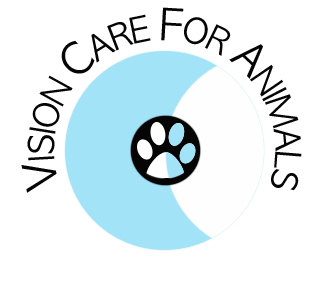Our very own Dr. McCallum was featured in Gentry Magazine this month! You can find the article in the January issue of Gentry (stop by the office for a copy), or go online and view at:
http://editiondigital.net/publication/?i=285618&p=128!
Happy New Year!!
All of us at Vision Care For Animals wish you a happy New Year, an enjoyable winter season, and prosperous 2016. This year we will introduce a quarterly newsletter with quick facts about veterinary ophthalmology, interesting cases and important office information. We hope our newsletter will be informative to our clients & referral community. As always your comments and suggestions are greatly appreciated. We hope you enjoy!
Why does my pet require recheck exams?
Many ophthalmology patients require regular examination for conditions that demand close monitoring. Patients that have glaucoma, corneal ulceration, newly diagnosed dry eye syndrome, uveitis etc. can have changes of the eye that become serious very quickly. Ensuring your pet is seen when recommended can make all the difference between sight and blindness.
For example, a patient that has been newly diagnosed with glaucoma requires frequent monitoring of intraocular pressure (IOP) to maintain comfort in their affected eye and to help preserve vision in their @ risk opposite eye . Glaucoma is elevated eye pressure within the eye(s) and if left untreated leads to permanent blindness due to irreversible optic nerve damage. Ensuring your pet is on the correct medication(s) and regularly measuring their IOP by tonometry will ensure that everything is being done to treat the disease and ultimately delay or prevent vision loss.
Did you know?...
- Did you know one of the main veterinary emergencies is due to an eye issue?
- Squinting, “winking”, rubbing or holding the eye closed is a sign that your pet is experiencing discomfort.
Case Highlight:
“Ziggy” is a two year old Maltipoo who was diagnosed with blinding glaucoma in his right eye before he turned one year old! After many attempts to control Ziggy’s glaucoma with medications, his right eye continued to decline. Ziggy was taken to surgery receiving an intrascleral prosthesis. Following the procedure Ziggy recovered quickly and felt so much better! Finally he was acting like a puppy again without the pain from glaucoma. We’re so happy Ziggy is better! Happy trails little pup!
When is my pet’s eye issue considered an emergency?
It can be difficult for pet owners to know when their pet’s eye problems are considered emergencies. Here are a few helpful tips to decide if your pet needs to be seen immediately:
There was a trauma: the pet was struck with an object, involved in a dog or cat fight etc. and the eye was clearly injured. In these cases, having your pet evaluated is necessary to maximize a good outcome.
There seems to be a “hole” or divot in the cornea (the eye surface): In this case, the eye may be at risk for rupture. Corneal grafting is highly successful with the best results achieved prior to corneal perforation (leaking).
Sudden and severe cloudiness +/- vision loss: this can be due to a very high pressure in the eye (glaucoma) or an acute lens-luxation. In either case, these conditions can be painful and your pet should be diagnosed ASAP to preserve vision and to relieve pain.
As always, if you are unsure if your pet is having an eye emergency, give our office a call! We are happy to talk with you and help guide a decision on the best action to take. Remember, it’s always best not to wait!
Our First Year:
A warm thank you to our clients and referring veterinarians for your fantastic support during our first year! We are grateful for the positive feedback, suggestions and recommendations you have provided. We hope to build on this solid foundation, continuing to help patients as we proceed into the New Year. Thanks again everyone, Kind Regards !






